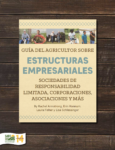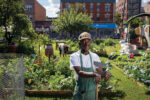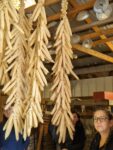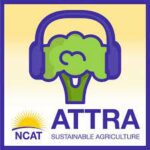Showing 61-70 of 302 results

Guía del Agricultorn Sobre Estructuras Empresariales
Establecer y mantener la correcta estructura empresarial para la operación de su granja sienta las bases para un negocio agrícola estable y resiliente. La formación de una estructura empresarial puede ayudar a i) gestionar el riesgo mediante la protección de los activos de las personas propietarias ante las responsabilidades de la empresa; ii) promover las […]
New Podcast Episode: "Building Local Food Systems in Montana"
In this episode of ATTRA's Voices from the Field podcast, NCAT Local Food Systems Specialist Maura Henn speaks with Michal DeChellis of the Alternative Energy Resources Organization (AERO) in Montana. Their conversation focuses on building resilient community food webs and connecting communities to local food solutions. DeChellis is AERO’s program manager for the Montana Food […]

SARE Seeking National Program Manager in Support of Food Loss and Food Waste Initiative in 2024
Distributed by SARE Outreach on behalf of Southern SARE. To apply, log in to or create an account in the SARE Grant Management System using the link below. For more information, contact Southern SARE Program Director Jeff Jordan at jjordan@uga.edu. GRIFFIN, Georgia -- In 2024, the Sustainable Agriculture Research and Education (SARE) program will initiate a $10 […]

New SARE Bulletin: Best Practices for the Sustainable Urban Farm
For decades, urban farms and community gardens have helped meet demand for fresh and local produce. Urban farming creatively utilizes limited space, conserves land and transforms vacant lots or buildings into productive greenspaces. Farming in cities can be a rewarding way for communities to grow healthy food while receiving a wide range of other interrelated environmental, […]
New Podcast Episode: "Breeding Squash for Disease Resistance and Eating Quality"
This episode of ATTRA's Voices from the Field podcast highlights the importance of local seed development and encourages passionate farmers to begin their own seed growing journey.

A Path to Farm Community
Farmers, like all of us, need time and strength to focus on relationships, health, healing and a sense of belonging, yet many agriculture service providers are unable to give wellness the attention it needs. A recent Cornell Small Farms project, Reconnecting with Purpose, aimed to provide farmers with additional support to cope with the hard […]

Water and Wonderment Abounds on WI State Tour for SARE Fellows
They gathered from their respective home waters—the Yahara, Shenendoah, Black Root, Vermillion, Marias, from Kansas, and all the way to the Delta and Everglades Basin—in fellowship to learn from the foodsheds of the dairy state and each other. State-based study tours are the current that charts the course for participants of the SARE Fellows program. […]
New Podcast Episode: "The Commercial Potential of Mulberries in the Midwest"
In this episode of ATTRA's Voices from the Field podcast, Weston Lombard and NCAT Sustainable Horticulture Specialist Guy Ames discuss the commercial possibilities and challenges mulberries present, along with different cultivars and growing strategies.

Growing New Markets for Specialty Crops
Voices from the Field is a podcast series co-produced by ATTRA and SARE that explores the different ways farmers are working to create new local markets for specialty and niche crops. Each partner episode will address a different production system or crop–from endives to small-grain value chains–and will feature farmers sharing their production and marketing […]

Changing Lives Through Better Communication
After a particularly stressful first year of farming on his own, organic vegetable farmer Marc Cavatorta was seeking support from other farmers. He found it when he attended a reflective retreat held not far from his farm in Palermo, Maine. “The retreat offered a chance to be with other farmers who were willing to talk […]